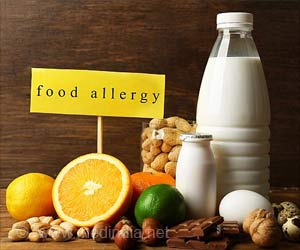Food could actually be an addiction with some people, whose neurological responses may be significantly different from those of normal eaters, states a new study at Yale University.

A group of 39 women were asked to answer the questions on the Yale Food Addiction Scale designed to identify pathological eaters. The fifteen women who scored high on these tests showed remarkably accentuated neurological responses to a picture of a milkshake as MRI scans reveal.
Ashley N. Gearhardt, lead author of the study and doctoral student in clinical psychology at Yale University, said that those who score high on the food-addiction scale show a craving to consume greater and greater quantities of food to achieve the same earlier emotional effect. She also warned that there are some who stop interacting with others so that nothing interrupts their eating.
Psychiatrists also caution that if there is an addiction problem, then lifestyle changes or gastric- bypass surgeries would be of no use. They state that the idea of personal responsibility may also be very minimally effective.
Although there has been a questioning of certain elements of the study, on the whole it has been felt that the study has its value. Dr.Mark Gold, University of Florida chairman of psychiatry and a prominent addiction researcher who wasn't involved in the study, states, "It's the first study to ask whether a paper-and-pencil checklist for food addiction correlates with brain regions known for drug reinforcement."
There have been other points of criticism too. Some have expressed the perspective that the brain’s reward centers are designed to respond anyway at the sight of food, since it is essential for survival. Moreover food addiction does not result in antisocial activities, flawed parenting, and poor quality of professional work, as drug addiction does.
Advertisement
Advertisement













